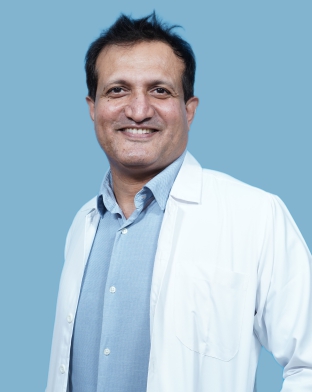Choosing the Right Surgeon and Center for Endoscopic Brain Surgery: A Patient’s Guide

Medicine Made Simple Summary
The success of endoscopic brain surgery depends not only on the procedure itself but also on the expertise of the surgeon and the facilities available at the hospital. With so many options available today, patients and families often feel overwhelmed when choosing where and with whom to undergo surgery. This guide explains how to evaluate neurosurgeons, what to look for in a medical center, and the critical questions you should ask before making a decision. Being informed helps ensure better surgical outcomes and peace of mind.
Why Surgeon Experience Matters
When it comes to neurosurgery, experience makes a significant difference. Studies show that surgeons who perform a higher volume of endoscopic brain surgeries tend to have better outcomes. The reason is simple: practice improves skill. A surgeon who has performed hundreds of pituitary surgeries is more familiar with complications, anatomical variations, and recovery nuances than one who has done only a handful.
Patients should look for:
1. Board certification in neurosurgery.
2. Subspecialty training in skull base or endoscopic surgery.
3. A high number of similar procedures performed each year.
4. Positive outcomes and patient testimonials.
5. Involvement in research or teaching, which often indicates up-to-date knowledge.
How to Evaluate a Hospital or Surgical Center
The hospital where surgery is performed is just as important as the surgeon. A good surgical outcome depends on teamwork, equipment, and support services. Here are key features of an ideal center:
1. A dedicated neurosurgery unit with experienced nurses and ICU staff.
2. Advanced imaging technology (high-resolution MRI and CT scanners).
3. Intraoperative navigation systems that help guide surgeons in real time.
4. Availability of endocrinologists, ophthalmologists, and rehabilitation experts for holistic care.
5. Accreditation by recognized medical boards or institutions.
6. Transparent patient support systems, including international patient services for those traveling from abroad.
Certifications and Accreditations to Check
Choosing a certified hospital and surgeon is critical for safety and quality. Patients should verify:
1. Whether the hospital has Joint Commission International (JCI) or National Accreditation Board for Hospitals (NABH) accreditation.
2. If the neurosurgeon is a member of professional bodies such as the Neurological Society of India (NSI)
3. Recognition by local or international medical boards.
4. Whether the hospital is part of a teaching program, which indicates exposure to advanced methods and case complexity.
Red Flags When Choosing a Surgeon or Center
While many hospitals and surgeons present themselves as leaders, patients should be aware of warning signs:
1. Lack of transparency in success rates or complication statistics.
2. Surgeons unwilling to answer patient questions or rushing through consultations.
3. Hospitals that avoid discussing costs upfront.
4. Limited follow-up support or aftercare services.
5. No access to emergency or intensive care facilities.
10 Essential Questions to Ask Your Neurosurgeon
Before finalizing your choice, prepare a list of questions to ask your neurosurgeon:
1. How many endoscopic brain surgeries have you performed?
2. What is your success rate with cases similar to mine?
3. What are the most common complications, and how are they managed?
4. Will you personally perform the entire surgery, or will trainees be involved?
5. What technology and equipment will be used during my surgery?
6. What type of anesthesia will be given, and what are its risks?
7. How long will I stay in the hospital?
8. What will recovery look like in the first two weeks, one month, and six months?
9. What is the likelihood of tumor recurrence after this surgery?
10. Should I consider getting a second opinion before proceeding?
When to Seek a Second Opinion
Seeking a second opinion is not a sign of doubt—it is a responsible step in medical decision-making. Different surgeons may have different approaches to the same condition. For example, one may recommend endoscopic surgery while another might suggest a combined or open approach. Patients benefit from understanding these perspectives before committing. Second opinions are especially valuable if:
1. The tumor is large or complex.
2. The surgeon recommends an approach you do not fully understand.
3. The hospital does not share clear outcome statistics.
4. You feel uncertain or pressured into making a quick decision.
Patient Experiences: Stories That Matter
Hearing directly from patients who have undergone endoscopic brain surgery can provide invaluable perspective. Some describe smooth recoveries with minimal pain, while others share challenges like nasal congestion, fatigue, or hormonal imbalances requiring long-term medication. Patients consistently emphasize that choosing an experienced surgeon and well-equipped hospital made the biggest difference in their outcomes.
Balancing Expertise with Accessibility
In some cases, the best hospitals and surgeons may not be geographically close or affordable. Patients and families must balance expertise with accessibility. Traveling abroad for surgery may be an option, but it requires careful consideration of travel logistics, follow-up care, and insurance coverage. For many patients, choosing the best available center within their country, combined with thorough follow-up, provides excellent outcomes.
Conclusion
If you or your loved one is preparing for endoscopic brain surgery, take time to carefully evaluate both the surgeon and the medical center. Prepare your questions, ask for success rates, and do not hesitate to seek a second opinion. Your choice of surgeon and hospital can have a direct impact on your recovery, quality of life, and long-term health. Being proactive and informed is the best way to ensure peace of mind during this journey.















